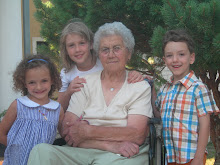In the instance of a disaster on a massive scale – like the earthquake in Haiti – we ask how such terrible events can happen. We wonder where the justice is in tragedies. I think that regardless of what your particular religious beliefs are, we question where God is in the midst of such overwhelming human anguish. Some curtly conclude that there couldn't be a God that would allow so much pain. Those that believe in God struggle with how he could be so dispassionate, or worse, such an angry and vengeful God.
On a personal level, even when it comes to "less severe" setbacks we may ask "why me?" Why was I the one to get fired? Why is my roof leaking? Why did she leave me? Why did I get cancer? When circumstances seem to be conspiring against you and the punches are raining down on you, it is not unusual to wonder what you did to deserve such punishment. I know that I've had that thought very many times regarding the connections between my life history and my cancer. I wondered whether or how I was responsible for what happened. Mostly it is in the sense of my physical actions that could have led to a tumor growing on my pancreas. Of course, I also considered my many moral failures in life – the many times I had hurt those that I loved, lacked heart, or rejected a Christian response.
So, whether it is a personal or global tragedy, we find ourselves asking the same questions about God, his heart, who deserves such consequences and where's the justice. Often, the scale of the catastrophe is such that it begs an explanation. We try our best to cobble one together even in the absence of any sense. Which may be why we turn to God on such occasions - he's the perfect fall guy. Our personal perspective is allowed validation regardless. If you don't believe in a God, a massive undeserved misfortune might prove just that for you. If you do, you at least have a place to vent your anger or the soothing option of writing off the tragedy to God's will.
[Though it's not something we can even consider in the midst of living through a calamity, the alternatives are worth considering during quieter moments. It may sound ideal at first glance, but what kind of life would it be if we all did live in good health, with some certainty to 80 years of age? Even with my lowered odds of making it there, I don't know that I'd choose that.]
Interestingly, I can't say that I've questioned God's existence more throughout my ordeal. If anything, I have felt his presence and so have come to believe in him more strongly. I see him much more evidently in my life now. I feel his presence when I am struggling (though I'd like to call upon God more readily with my daily challenges). I see his face in my joys – whether that first-light warmth on a new morning or the pure-joy laughter of my babies. And since I have kept God around more lately, I have certainly pleaded and bargained with him. True to form, he's kept up his end of the deal better than I have. I'm still here even though I've regularly fallen short of being the new and improved me that I've promised. Finally, I can't say that I haven't been angry with him from time to time.
Also in the interests of fairness, isn't it curious that we don't ask the "why me?" question when things are going well. It's as if, deep down we have an expectation of our ship coming in or our lottery numbers being drawn regardless of our merits. If the outrageous blessings are going to flow to someone, it might as well be us, right? We count on God being somewhat liberal when handing out the prizes and conservatively judicious with the punishments. We're funny like that.
Ultimately, the "why me?" question gets at the heart of our hopes and beliefs. Without knowing the mind of God, it's a question that we can't answer. God-willing, we'll find out one day when we are in a better place and the whys matter much less.
Subscribe to:
Post Comments (Atom)


No comments:
Post a Comment